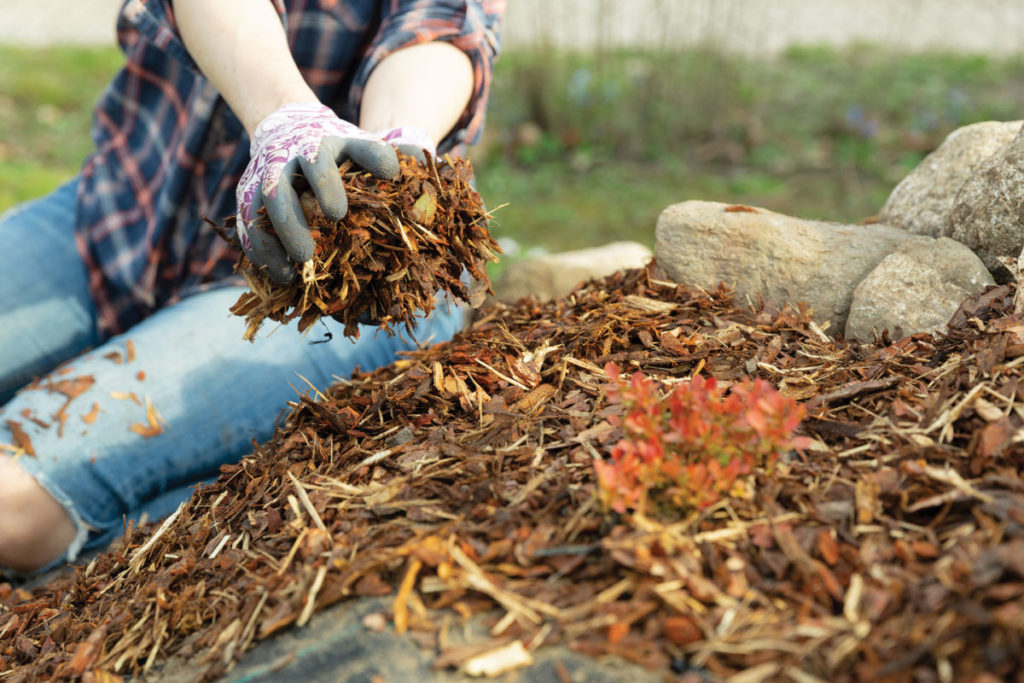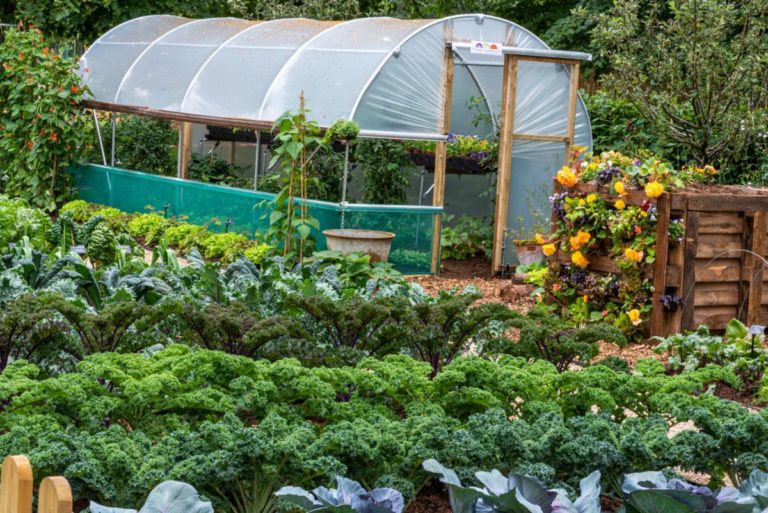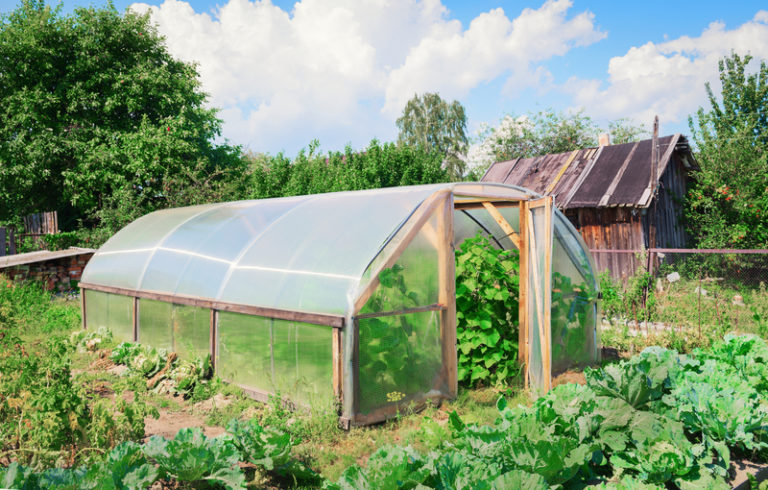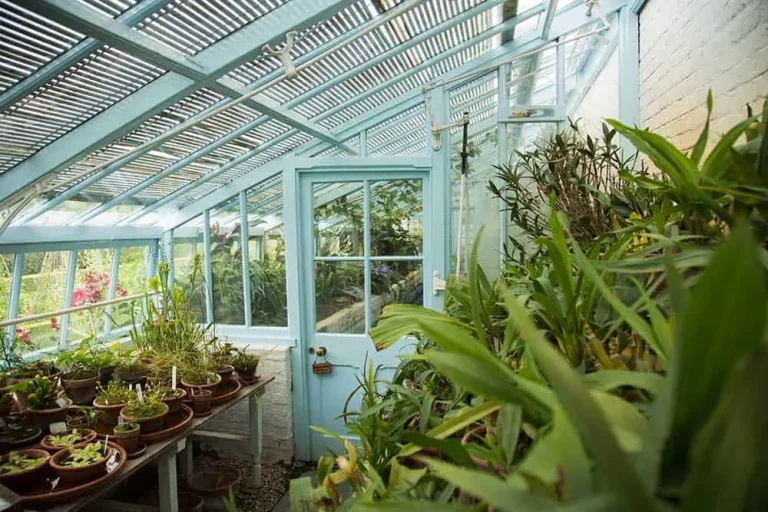Mulching is a simple yet highly effective practice that can revolutionize your gardening experience.
By incorporating mulch into your soil, you can improve its health and reduce the need for frequent maintenance.
Mulch acts as an insulator, regulating soil temperature and preventing moisture loss, which in turn promotes healthy plant growth.
Mulch helps to suppress weeds, reducing the amount of time spent on pesky upkeep tasks.
With these benefits, it’s no wonder why mulching has become a staple technique for gardeners of all skill levels and interests.
Whether you have a sprawling flower bed or a small container garden, mulch is an essential element that can bring your green space to life!
Soil Temperature Regulation
Mulch helps regulate soil temperature, keeping it cooler in the summer and warmer in the winter. This helps promote healthy soil microbe activity and reduces the risk of soil burn.
One of the most important roles that mulch plays is in regulating soil temperature.
In the summer months, mulch helps to keep the soil cooler, preventing it from becoming too hot and damaging the delicate roots of your plants.
This is especially important for vegetables like tomatoes, peppers, and eggplants, which thrive in soil temperatures between 65-75 degrees Fahrenheit.
In the winter, mulch helps to insulate the soil, keeping it warmer and promoting healthy soil microbe activity.
This is important for plants that are sensitive to cold temperatures, such as lettuce, kale, and spinach.
By regulating soil temperature, mulch helps to reduce the risk of soil burn, which can be devastating to plants.
By choosing the right type of mulch for your specific climate and plants, you can create a healthy, thriving garden that produces bountiful harvests year after year.
Moisture Retention
Mulch acts as an insulating layer, retaining moisture in the soil and reducing evaporation. This helps to prevent drought stress and promotes healthy plant growth.
Mulching your garden beds with a thick layer of organic material like wood chips, bark, or straw can significantly improve moisture retention.
As an insulating layer, mulch acts as a barrier between the soil and the elements, reducing evaporation and retaining more moisture in the soil.
This helps to prevent drought stress, which can be a major limiting factor for plant growth.
By retaining moisture, mulch promotes healthy plant growth, allowing your plants to access the water they need to thrive, even during dry spells.
The organic matter in mulch can help to improve the structure and fertility of the soil, further enhancing plant growth and development.
By incorporating mulch into your gardening routine, you can help ensure that your plants receive the moisture they need to grow strong and healthy, even in challenging weather conditions.
Weed Suppression
Mulch can prevent weed growth by blocking sunlight and preventing seed germination. This can reduce the need for herbicides and improve soil health.
Mulching is a highly effective method of weed suppression, as it blocks sunlight from reaching weed seeds and prevents seed germination.
By creating a barrier between the soil and the sun, mulch prevents weeds from growing and thriving, reducing the need for herbicides and improving soil health.
As mulch breaks down over time, it enriches the soil with organic matter and nutrients, creating a healthier and more productive growing environment for your plants.
This method of weed suppression is not only environmentally friendly, but it can also save you time and money by reducing the need for costly herbicides and tedious manual weeding.
By incorporating mulch into your gardening routine, you can enjoy a healthier, more vibrant garden with minimal weed growth.
Improved Soil Structure
Mulch can improve soil structure by breaking up clay soils and improving drainage, and by adding organic matter to sandy soils. This can improve soil porosity and promote healthy root growth.
Mulch can significantly improve soil structure, enhancing its porosity and promoting healthy root growth.
In clay soils, mulch helps break up the dense, compacted clay, improving drainage and aeration.
By creating a matrix of organic material and soil particles, mulch disrupts the tightly-packed structure of clay, allowing water and air to penetrate deeper into the soil.
Mulch adds organic matter to sandy soils, which can be low in nutrients and structure.
The integration of mulch into these soils increases the amount of organic matter, improving soil porosity and promoting healthy root growth.
By promoting better drainage and aeration, mulch helps prevent waterlogged and oxygen-deprived conditions that can stunt root growth.
The end result is a healthier, more resilient soil that can support a greater diversity of plant life.
Increased Soil Organic Matter
Mulch adds organic matter to the soil, which can improve soil fertility and promote healthy soil microbe activity.
Mulching is a simple yet powerful technique for improving soil fertility and promoting healthy soil microbe activity.
By adding a layer of organic material, such as wood chips or straw, to the soil surface, mulching increases the amount of organic matter in the soil.
This boost in organic matter has a ripple effect throughout the soil ecosystem, supporting a diverse community of microorganisms and improving soil structure.
With more organic matter, the soil is better able to retain water and nutrients, and supports healthy root growth.
The organic matter in the mulch breaks down over time, providing a steady supply of nutrients to the soil and supporting the growth of beneficial microorganisms.
By incorporating mulch into your gardening routine, you can improve soil health, promote nutrient cycling, and support a thriving ecosystem of microorganisms.
Reduced Soil Compaction
Mulch can reduce soil compaction by allowing water to penetrate the soil more easily, and by reducing the need for heavy machinery and foot traffic.
Reduced soil compaction is a key benefit of using mulch in your garden or landscape.
Compacted soil can be a major hindrance to healthy plant growth, as it restricts the flow of water and nutrients to the roots.
Mulch helps to alleviate this issue by allowing water to penetrate the soil more easily.
This is because mulch acts as a barrier between the soil and the foot traffic or heavy machinery that can cause compaction.
By reducing the need for heavy machinery and foot traffic, mulch helps to minimize the risk of soil compaction.
This is especially important in areas with heavy rainfall or high levels of foot traffic, as it can help to prevent soil erosion and keep your garden or landscape looking its best.
Overall, the use of mulch is an effective way to reduce soil compaction and promote healthy plant growth.
Improved Nutrient Cycling
Mulch can improve nutrient cycling by providing a habitat for soil microbes and adding organic matter to the soil. This can promote healthy plant growth and reduce the need for fertilizers.
Mulch is a powerful tool for improving nutrient cycling in your garden or landscape.
By providing a habitat for soil microbes and adding organic matter to the soil, mulch can promote healthy plant growth and reduce the need for fertilizers.
Soil microbes, such as bacteria and fungi, play a important role in breaking down organic matter and making nutrients available to plants.
Mulch, which is made up of organic materials like leaves, wood chips, and straw, provides a food source for these microbes, encouraging them to multiply and thrive.
As the microbes break down the organic matter, they release nutrients like nitrogen, phosphorus, and potassium, which are then made available to plants.
This cycle of nutrient availability is continuous, as the mulch provides a steady supply of organic matter for the microbes to feed on, promoting healthy plant growth and reducing the need for fertilizers.
Mulch can help to improve soil structure, reducing compaction and improving water infiltration, which can further support healthy root growth and nutrient uptake.
By incorporating mulch into your garden or landscape, you can promote a healthy and sustainable nutrient cycle, supporting the growth and success of your plants.
Aesthetic Appeal
Mulch can add an attractive, finished look to landscapes, gardens, and other outdoor spaces. This can increase the beauty and value of the area, and can reduce the need for ongoing maintenance.
Mulch can add a stunning, finished look to any outdoor space, transforming it from a drab, unkempt area into a visually appealing oasis.
The carefully selected colors and textures of mulch can complement the surrounding plants and hardscapes, creating a cohesive and attractive design.
Whether you prefer a natural, earthy look or a vibrant pop of color, there is a mulch type and color to suit your taste.
Mulch can help to reduce the need for ongoing maintenance by suppressing weeds and retaining moisture, allowing you to spend more time enjoying your outdoor space and less time tending to it.
With its durability and versatility, mulch is an investment that will continue to pay dividends in the form of increased property value and enjoyment for years to come.
Want More? Dive Deeper Here!
Hey there! If you’re the type who loves going down the rabbit hole of information (like we do), you’re in the right spot. We’ve pulled together some cool reads and resources that dive a bit deeper into the stuff we chat about on our site. Whether you’re just killing time or super into the topic, these picks might just be what you’re looking for. Happy reading!






